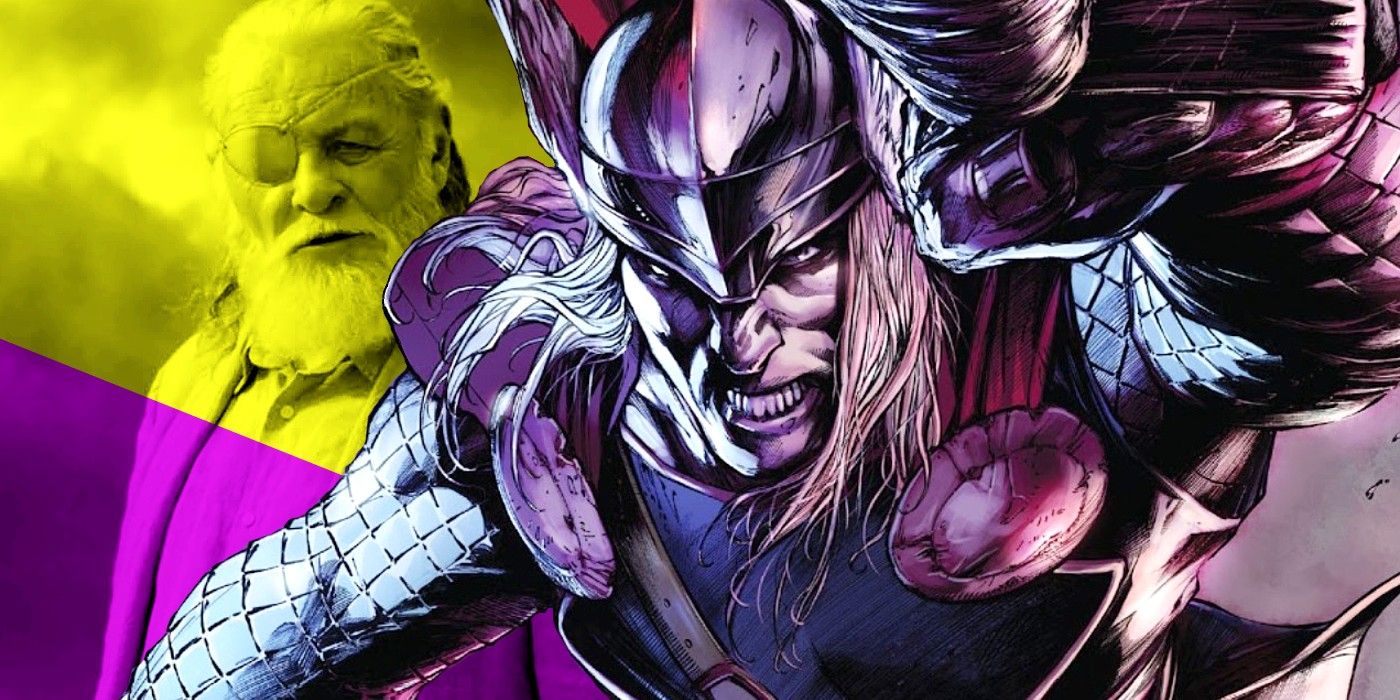
While Thor may always have honored Odin as the ruler of Asgard, the All-Father was also the one god Thor didn't want to resurrect following Ragnarok. In Norse mythology, "Ragnarok" is far more than just the Twilight of the Gods. The Vikings understood history to be cyclical, and they believed Ragnarok marked the point at which one cycle ended and another began. Marvel Comics' version of Ragnarok followed this pattern as well, with Thor ultimately learning the truth and breaking the pattern, allowing the latest Ragnarok to act as the last.
The God of Thunder returned in J. Michael Straczynski's acclaimed Thor run in 2007, learning the gods were empowered by the faith of mortals. "If it is for mortals to say whether gods exist," Thor was advised in the afterlife, "then I say that they live on, in the hearts and souls and minds of mortals. They need only be found, and awakened." And so when Thor returned to Earth, he began restoring the gods who had fallen during Ragnarok. Curiously, though, he exerted absolutely no effort to resurrect his fallen All-Father, Odin. This omission ultimately led him to a fascinating conversation with Odin's spirit when Thor entered the realm of the dead. There, he found Odin's spirit locked in eternal combat with the last vestige of the fire giant Surtur.
In Thor #7 from Straczynski, Marko Djurdjevic, Danny Miki, and Jelena Kevic Djurdjevic, Odin did not blame his son for choosing not to resurrect him. "If you wished to recall me from the darkness, my son," the All-Father observed, "you would have made some effort before now. Would have summoned mages, would have asked questions, would have tried. You did not. As I would have not, in your place." As Odin explains, each generation of All-Father must choose to allow their father to die in order to inherit their power and shape the future in their own way. Odin did not resent this, but rather understood it, and even accepted it.

The tragic irony is that Odin had been deceived. His understanding was based on his own past; on his decision to take the throne of Asgard and not to attempt to resurrect his own father, Bor. Unbeknownst to Odin, Bor's apparent death had been orchestrated by a time-traveling Loki, with the trickster god manipulating the entire history of Asgard in order to ensure he was created. Even worse, the God of Mischief had pretended to be Bor's spirit haunting Odin for years, fueling those fires of regret, self-doubt, and self-hatred. For his part, Thor had to admit he believed the age of Odin was at an end and the former All-Father should remain dead, but he still loved his father - as he proved by helping him in battle against Surtur's spirit.
Death is a revolving door in comics, and it was only a matter of time before Odin was returned. In yet another irony, Thor was proved correct, because Odin then led Asgard to ruin and failed to prevent the War of the Realms. In current comics, Thor is once again the All-Father of Asgard, this time because Odin acknowledged his time was over and stepped down, but both would probably admit that the God of Thunder was correct in his original decision to allow Odin the rest he had most assuredly earned.
from ScreenRant - Feed https://ift.tt/3iJDUAc
via IFTTT







0 comments:
Post a Comment